Ad-hoc creation of ubiquitous computing environments
Although a large percentage of people in the industrialized world now carry a high-powered computer in their pockets at all times, spontaneous collaboration using these ubiquitous mobile devices is still difficult. We seek to explore new ways to share, explore, and interact with data without requiring cloud services or complex and lengthy setup procedures.
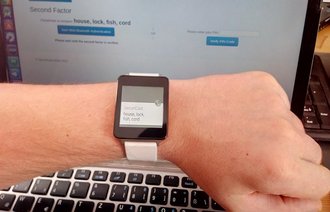
Simple username/password logins are widely used on the web, but are susceptible to multiple security issues, such as database leaks, phishing, and password re-use. We introduce SecuriCast, a method to provide two-factor authentication using WebBluetooth as a secondary channel between an unmodified web browser and the user's smartphone or smartwatch.
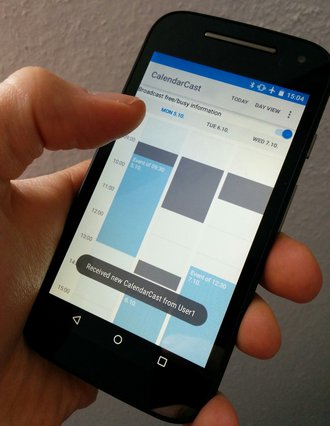
CalendarCast is a novel method to support the common task of finding a suitable time and date for a shared meeting among co-located participants using their personal mobile devices. We describe the Bluetooth-based wireless protocol and interaction concept on which CalendarCast is based, present a prototypical implementation with Android smartphones and dedicated beacons, and report on results of a user study demonstrating improved task performance compared to unaugmented calendars.
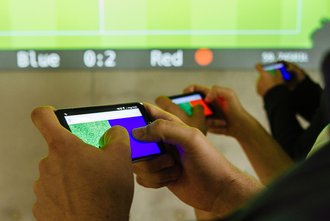
Public displays are becoming more and more common, but are usually passive information sources. In this project, we developed the Massive Mobile Multiuser (M³) framework to allow simultaneous interaction of multiple persons with public displays through their personal mobile devices.
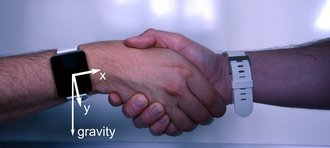
ShakeCast is a system for automatic peer-to-peer exchange of contact information between two persons who just shook hands. The accelerometer in a smartwatch is used to detect the physical handshake and implicitly triggers a setup-free information transfer between the users' personal smartphones using Bluetooth LE broadcasts. An abstract representation of the handshake motion data is used to disambiguate between multiple simultaneous transmissions and to prevent accidental data leakage.
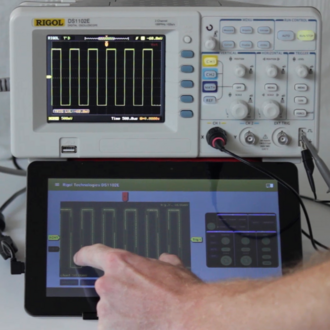
Oscilloscopes are a valuable tool for analyzing and debugging electronic circuits, but are also complex scientific instruments. Novices are faced with a seemingly overwhelming array of knobs and buttons, and usually require lengthy training before being able to use these devices productively. TouchScope uses a multitouch tablet in combination with an unmodified off-the-shelf oscilloscope to provide a novice-friendly hybrid interface.
